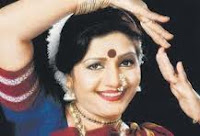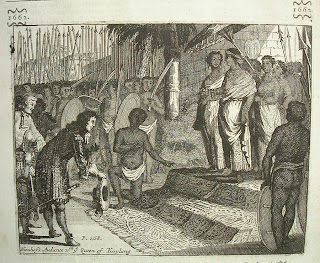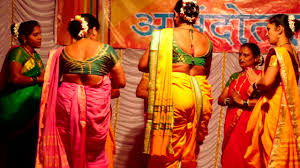Shree Narayana Guru- a Great Saint and great Social Reformer (1856–1928)
Shree Narayana Guru well known as Shree Narayana Guru Swami was a Hindu saint & a social reformer of India. Narayana Guru was born on August 20, 1856, in the village of Chempazhanthi near Thiruvananthapuram to Shri Madan Asan, a farmer, and Smt. Kutti Amma into an Ezhava family, a backward community in Kerala. Billavas of Karnataka, Irava in Tamil Nadu racially the same as of Ezhava community of Kerala.
He was fondly called Nanu. His father was also a teacher and learned scholar in Sanskrit, Astrology, and Ayurveda. As a child, he was exposed to narratives and stories from the Puranas and Itihaasas like- Ramayana and the Mahabharata- He was also initiated into the traditional formal education Ezhuthinirithal by Chempazhanthi Pillai, Sanskrit, Tamil, traditional subjects such as Siddharupam, Balaprobhodhanam, and Amarakosam and Ayurveda from his father and Uncle Sri Krishnan Vaidyan-an Ayurvedic Physician.
As a young boy, he would criticize his own people for social discrimination and segregation practices of, lower castes. During his childhood there existed not just untouchability, but also prevailed unshadowability. A lower caste person’s very shadow would pollute an upper caste person. So they maintained 5 to 30 feet of physical distance. Unbelievably, there was even ‘Unseeability’. At least one caste of the lower hunters has considered as inauspicious that the very sight of them causes people to be polluted. Poor people would be shouting when they step out of their houses ‘I am coming this way, please look away, my masters to avoid being seen’. A lot of these disturbed him a lot.
He preferred solitude and would immerse in meditation for hours on end. At the age of 21, young Nanu was sent to a famous scholar, Sri. Kummampilli Rāman Pillai Asan in Karunagapally. Along with co-students, he mastered Veda, Upanishads, Sanskrit and Drama & Poetry, Literature, and Nyaya Shastra. He began teaching at a nearby school. The knowledge gained, earned him the respect of many and he was then known as “Nanu Asan”.
Later, he returned to his village and served his father till his death. In the meanwhile, he also got married to Kaliamma, the daughter of a traditional village doctor. Though he got married, still he traveled far and wide as a wanderer leaving his wife at her parent’s place. After his wife’s sudden demise, his journey was steadfast in search of truth. He was known as wandering Sanyasi- a ‘Parivrajaka’.
It was during one of these days that he met a Spiritual Guru Sri. Kunjan Pillai, known as Sri. Chattampi Swamigal. Sri. Kunjan Pillai, who discovered and appreciated Nanu Asan’s philosophy and passion for yoga, introduced him to Thycattu Ayyaavu, a ‘Hatha yogi’. Under the yogi, he mastered various Yogic practices, including Hatha Yoga. He then moved into a hermitage deep inside the hilly forests of Maruthwāmala, where he led an austere life immersed in meditative thoughts and yoga for eight long years and is believed to have attained a state of Enlightenment.
He was given the name ‘Nanarayana Guru’by his preceptor Sri. Kunjan Pillai. He continued his wanderings in quest of Truth. By and by, he came to a beautiful place called Aruvippuram a forest area. There he installed a Shiva Linga which was opposed by Brahmin and other forward communities. To which he replied, his famous quote ‘I installed my Siva; not a Brahmin Siva’ and to those who questioned the timing of the consecration saying it was not an astrologically auspicious time, he replied ‘Horoscope is to be cast after the birth of a child, not before’. This incident later came to be called the Aruvipuram Pratishta.
A new phase began in the Guru’s life in 1904. He decided to give up his wandering life and settle down in a place to continue his Sadhan –a spiritual practice. He chose Shivagiri, twenty miles north of Thiruvananthapuram. Goddess ‘Amba’ became his deity of worship. In 1913, the Guru founded an Ashram at Aluva. It was called the Advaita Ashram. The Ashram was dedicated to a great principle – Om Sahodaryam Sarvatra -all human beings are equal in the eyes of God.
His teaching for common people was on cleanliness, education, and equality is extremely important for societal growth. Sri Narayana Guru is a name that evokes respect - not just in Kerala - but across India and Sri Lanka as well. He propagated the ideals of compassion and religious tolerance. His writings in "Anukampadasakam" extol various religious figures such as Krishna, The Buddha, and Adi Shankara. People of all castes and communities came to realize how evolved Narayana Guru's teachings were. Right from Ramana Maharshi, to Rabindranath Tagore, to Mahatma Gandhi, social reformers and spiritual leaders met Narayana Guru to express their shared beliefs in his works.
Sree Narayana Guru overturned the entire social system in Keraka without creating much animosity and reverse oppression. Sree Narayana Guru was a Yugpurusha. His words and actions are universal and an inspiration to the oppressed anywhere in the world, and his singular exhortation to them to gain self-respect. Guru published 45 works in Malayalam, Sanskrit, and Tamil languages which include Atmapadesa Satakam, a hundred-verse spiritual poem, and Daiva Dasakam, a universal prayer in ten verses.
It was he who propagated the motto, One Caste, One Religion, One God for All (Oru Jathi, Oru Matham, Oru Daivam, Manushyanu) which has become popular as a saying in Kerala. His writings still inspire people. It was in Sarada Mutt, this great social reformer attained the Samadhi –the abode of the Almighty on 20 September 1928, at the age of 73. The Shree Narayana Jayanthi, a birthday of the Guru, and the Samadhi day are befittingly celebrated in August and September respectively every year. On these days colourful processions, seminars, public meetings, cultural shows, community feasts, and special rituals are held. In the last week of December, devotees of Shree Narayana Guru donned yellow attire stream to Sivagiri from different parts of Kerala and outside, in what may be called a pilgrimage of enlightenment.














Comments